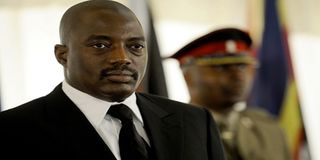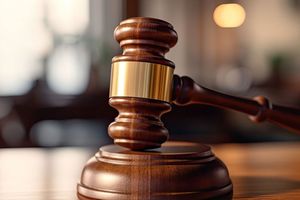Kabila counts on Rwanda, Uganda backing to retain power

What you need to know:
On Monday, days after the meeting between Presidents Kabila and Kagame, it was announced that Congolese government forces arrested a commander of the FDLR rebel group. FDLR, an outfit of Hutu militias accused of taking part in the 1994 Genocide against the Tutsi, has been active in eastern DR Congo for two decades.
Democratic Republic of Congo President Joseph Kabila is seeking Rwanda and Uganda’s support to prolong his stay in office, as pressure mounts on him to organise elections and to drop his bid to extend his current term.
President Kabila last week met his Rwandan counterpart Paul Kagame at the border town of Rubavu, where they were reported to have discussed matters of “bilateral co-operation.” However, it is understood that the Congolese leader was laying the ground for his next political move.
President Kabila is under intense pressure from opposition groups and donors who are urging him to step down and allow a new leader to take over, with protests against him taking place countrywide.
Reliable sources indicate that President Kabila, who a week before meeting President Kagame had met his Ugandan counterpart Yoweri Museveni, is seeking support from leaders in the Great Lakes region to help him deal with mounting pressure.
Opposition groups, including rebel groups forming in the east of the country, are threatening to wage a war against the government if President Kabila goes for a third term.
Alexis Byicaza Sebatware, the head of a new group called Les Forces Novatrices pour Union et la Démocratie Congolaise (Innovative Forces for Union and Congolese Democracy) said that President Kabila’s trips are aimed at achieving his goal of staying in power.
“We know his plan. But we have given him an ultimatum to organise elections and hand over power,” said Mr Sebatware. “If he doesn’t, we are ready to pick up arms against his government and our aim will be to split the country into two independent states because he has refused to respect the Constitution.”
President Kabila faces resistance in eastern DR Congo, where his onetime ally and now rival Moise Katumbi, enjoys huge support. Mr Katumbi, a wealthy and popular businessman and leader of opposition, remains in exile after he left the country in May to seek treatment following an attack by security forces. A lengthy sentence and more charges, including threatening state security, await him.
Protests in Beni
Last week, protests against President Kabila continued in the town of Beni, in eastern DR Congo, where security forces shot at hundreds of demonstrators in an attempt to disperse them.
With resistance mounting in eastern DR Congo, President Kabila is counting on Rwanda to help contain the Kinyarwanda-speaking Congolese who are up in arms against his government.
Analysts of regional geopolitics see President Kabila’s quick successive visits to Uganda and Rwanda as a strategic move to pacify eastern DR Congo and use it as a stepping stone to extend his rule.
With the issue of M23 remaining in the way, President Kabila fears that a volatile eastern DR Congo would threaten his chances of seeking another term in office. Hundreds of M23 former fighters remain in Rwanda and Uganda, almost four years after an agreement was reached to repatriate them and reintegrate them back in the two countries.
According to sources privy to the talks between the three heads of state, the Congolese president promised to address the matter “with finality.”
Rwanda and Uganda were accused by the UN Group of Experts of backing the rebels who waged war in eastern Congo in April 2012, even though both countries denied the accusations.
In return, Mr Kabila promised Rwanda and Uganda “full co-operation” in dealing with the two rebel groups — Democratic Forces for the Liberation of Rwanda (FDLR) and the Allied Democratic Forces (ADF).
Arrest of Rwandan rebel commander
On Monday, days after the meeting between Presidents Kabila and Kagame, it was announced that Congolese government forces arrested a commander of the FDLR rebel group. FDLR, an outfit of Hutu militias accused of taking part in the 1994 Genocide against the Tutsi, has been active in eastern DR Congo for two decades.
According to the UN’s Radio Okapi, Maj Sabimana Iraguha, alias Mugisha Vanqueur, a commander of the FDLR’s military wing, the Forces Combattantes Abacunguzi, was captured last Thursday and paraded before the media on Friday, in the provincial capital, Goma. Rwanda has in the past accused the DR Congo and UN of showing no will to deal with the FDLR menace.
Uganda, Rwanda and DRC have been at loggerheads at different points in the past 22 years, despite the former two working together to install Laurent Desire Kabila, after deposing Mobutu Sese Seko in 1997. Joseph Kabila took over in 2001 after his father was assassinated.
In Rwanda, President’s Kabila and Kagame committed to strengthening mutual efforts to revitalise bilateral relations, including the enhancing of diplomatic relations between Rwanda and the DRC.
“The two sides exchanged on several topics regarding mutual interest and agreed to strengthen bilateral cooperation, particularly in the areas of cross-border trade and energy, specifically in the extraction of methane gas from Lake Kivu,” reads the joint statement signed by DRC and Rwandan officials.
Meanwhile, the US has warned that President Kabila’s decision to hold onto power will escalate further violence in the already volatile mineral-rich nation.
“Countries where incumbents try to change the rules to stay in power are five times more likely to face violence and instability,” Thomas Perriello, the State Department’s special envoy to the Great Lakes region of Africa said last week while speaking at the Brookings Institution in Washington.




